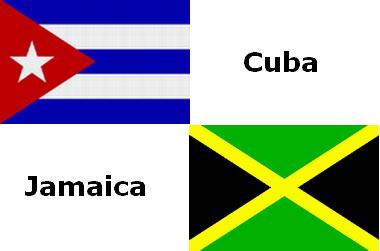Cuba: Jamaica on the Right Side of History

United States President Barack Obama's announcement last week of a thaw in relations with Cuba offers some opportunities for Jamaica, former Cabinet minister Dr. Christopher Tufton believes.
"There are potential synergies for tourism by establishing a regional presence and having a packaged approach for tourists going to Cuba and coming to Jamaica," Tufton, who headed the Industry, Investment and Commerce Ministry, as well as the Ministry of Agriculture and Fisheries at separate periods during the previous Jamaica Labor Party Government, told the Jamaica Observer last week.
"We already have strong Spanish presence here and so the language barrier may not be such a big issue," Tufton added.
He admitted that the curiosity factor may result in Cuba pulling North American visitors from Jamaica. However, he insisted that the opportunity to package both countries exists if there is an entrepreneurial appetite to do so.
Tufton was offering his views on the executive orders Obama announced last Wednesday to clear the way for limited exports to Cuba and freer travel by specific categories of Americans such as academics and artists.
The announcement reverberated around the world as Obama insisted that ending America's "outdated approach" to Cuba was the right thing to do.
"These 50 years have shown that isolation has not worked," Obama said in remarks from the White House. "It's time for a new approach."
The US is also easing restrictions on travel to Cuba, including for family visits, official US Government business and educational activities. But tourist travel remains banned.
Obama, though, acknowledged his need to work with Congress to end the embargo, which was fully implemented in 1962 and which Cuba blames for the dire condition of its infrastructure and economy.
Last week, Tufton, who is now co-executive director of the Caribbean Policy Research Institute, noted that while the historic developments are good for the Cuban people, who have had to suffer the lack of opportunities over the past 52 years, there are still many hurdles in the way to total access and normalization.
The key hurdle, he said, would be the Congress and Senate, now controlled by the Republicans after the US mid-term elections.
"It is quite clear that there is going to be some push back on that front, and therefore the full liberalization or normalization is not likely yet to be seen, and we'll have to watch that debate at the level of the legislators," Tufton said.
He pointed out that the Helms Burton Law, which was passed in 1996 and which essentially criminalized foreigners who trade with or invest in properties that were seized by the Cuban Government during the revolution, had kept a lot of Americans and other entities away. "So that law would have to be modified if there is to be economic adjustment," Tufton said.
He noted, though, that Cuba represented tremendous potential to foreign investors as the Spanish-speaking island had a more educated population, a larger workforce and, very importantly, a much larger consumer market -- 11 million people, as opposed to Jamaica's approximately three million.
"So investors who may be catering to a local market for consumer durables, for food, for other such things, could easily see Cuba as a major possibility because of its sheer size. And even though the disposable income might not be as high, it's a start, so people will want a first-mover advantage to go in and that could be a challenge to Jamaica. So that's something that we have to take seriously in terms of assessing the investment location of Cuba vs. Jamaica for the type of investments we're trying to attract," Tufton said.
However, he argued that, given the many years of good relationship between Jamaica and Cuba, both countries could work together to leverage services required by foreign and local investors.
"So our entrepreneurs...will need to look at those things and try to see to what extent we can inform our investment community and where necessary establish those linkages or synergies," he said.
Source: The Jamaica Observer













